From Climate Despair to Climate Repair: Tens of Thousands of Students Join Worldwide Teach-In
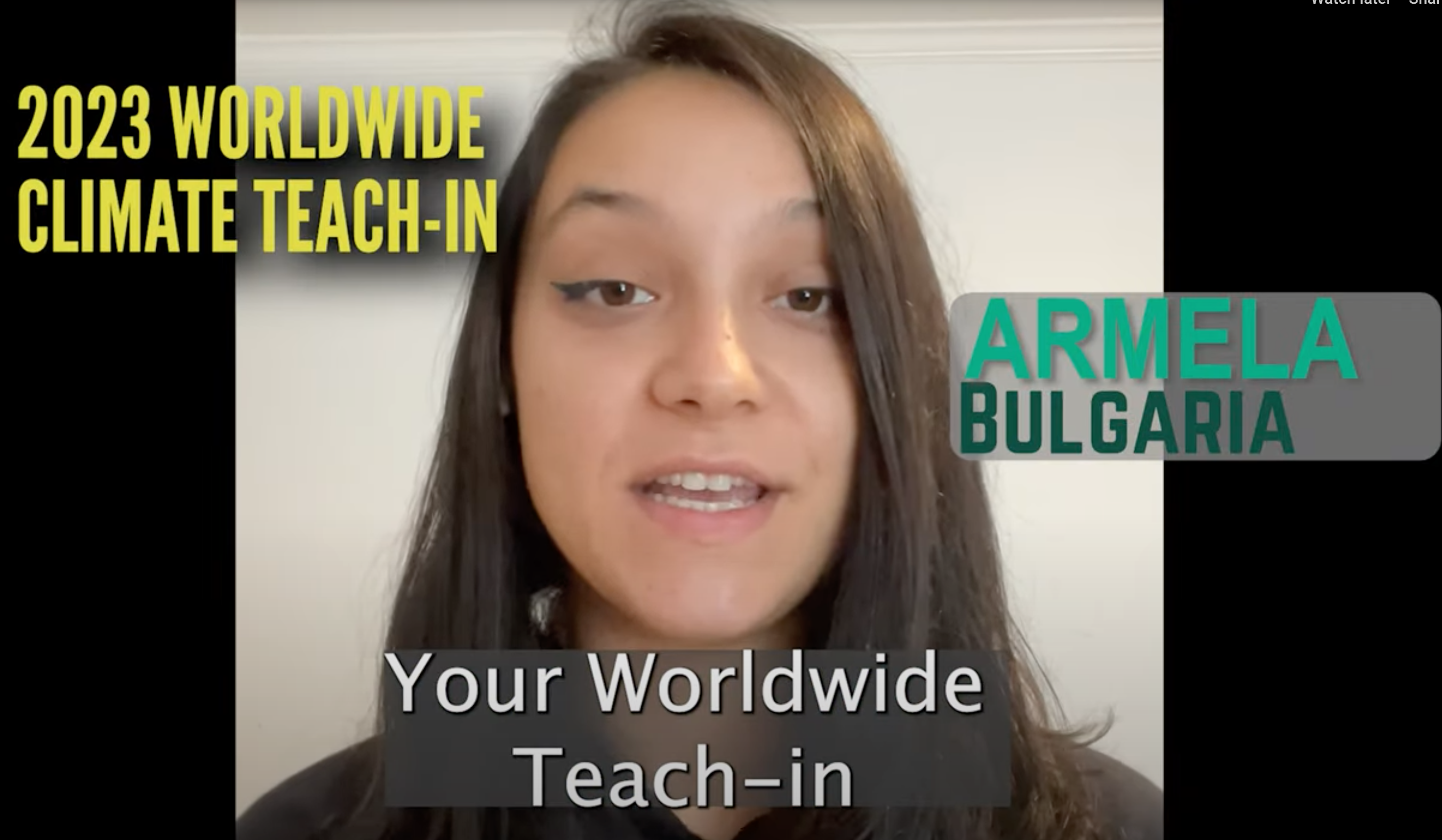
Juwonlo has spent the last six months supporting a series of educational gatherings across Africa focused on climate change. Sakhi has been helping guide two dozen students in Kyrgyzstan as they promote a series of climate teach-ins in Central Asia. Marina, a profesora in Brazil, and Alec, a teacher in the Philippines, have been working to help other educators organize climate education events across their countries.
“Stronger together” is a key idea behind the WorldWide Teach-in in Climate and Justice that kicked off on March 29th. Over 250 colleges, universities and high schools in more than 40 countries are engaging close to 30,000 students in a series of events and classes focused on helping students and teachers move from “Climate Despair to Climate Repair”.
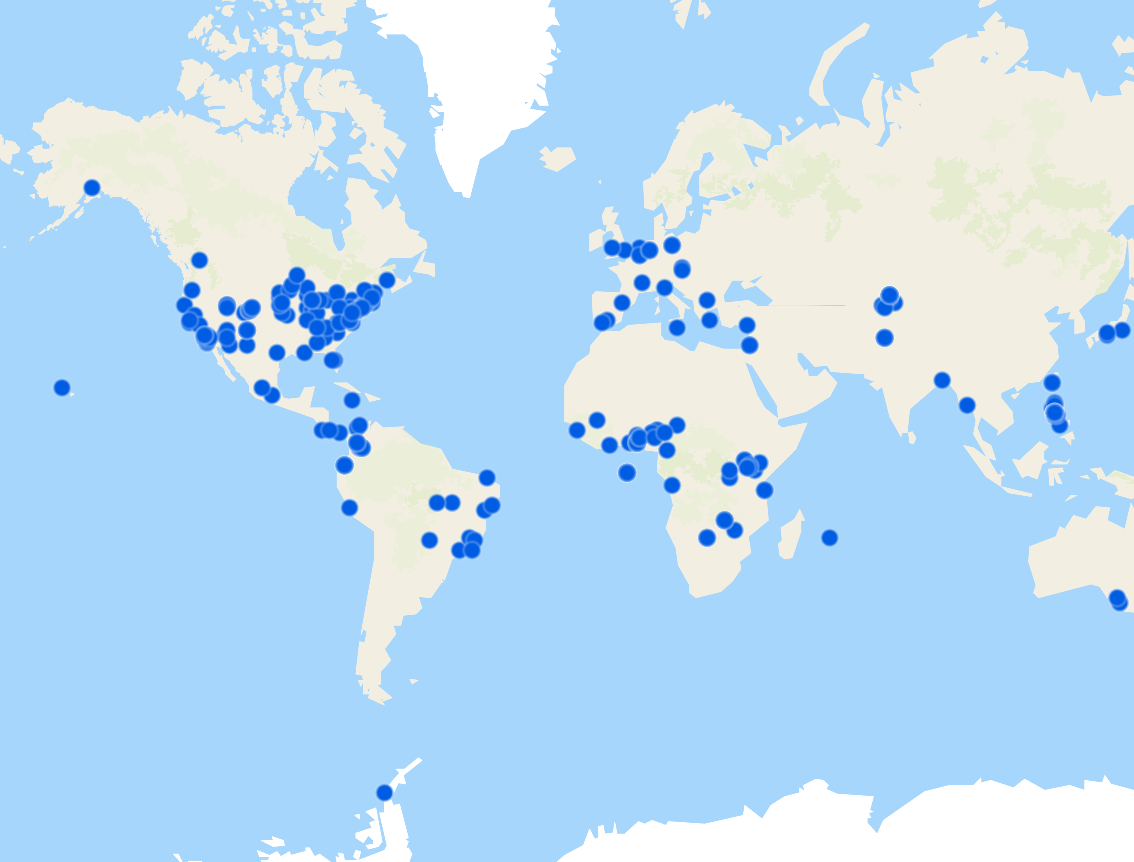
The 2022 Teach-in, More Than 250 Universities and Schools
Dr. Eban Goodstein, an economist at Bard College in New York, and one of the co-Directors of the WorldWide Teach-in, argues that today most students understand basic climate science. They know the planet has been blanketed by heat trapping pollution, mostly from burning fossil fuels. And they know as well the consequences of a hotter world: more intense hurricanes and typhoons, rising sea levels, increasing drought, crop failure, forest fires, flooding-- and more and more climate refugees.
“Climate change seems overwhelming and inevitable. A natural reaction to this information is depression and disengagement.” said Goodstein. “But that paralysis is itself the biggest threat to the future of the planet. In fact, people all over the world are taking action to cut global warming pollution, and we are already seeing scientists scale back predictions of how hot the future is likely to be. All of us can make a difference.”
What’s a Teach-In?
Climate change teach-ins across the world are taking all shapes and sizes. Juwonlo’s African events are mostly in secondary schools. Among other issues, students learn about cooking and heating technologies that are cheaper, healthier and less polluting than wood fires, and share that information with their parents. At the American University of Central Asia, a series of workshops also centers on polluted air, from coal-burning heaters. Bishkek, the capital of Kyrgyzstan ranks as one of the most polluted cities in the world.
In Brazil, there are 10 Teach-Ins, some in state capitals, but also in small cities. The team is also translating lesson plans about climate into Portuguese to increase the options for elementary and high school teachers. And in the Philippines, organizers convened a meeting of over 50 teachers from across the country to discuss how to incorporate climate topics into their classes. At least seventeen teach-in events are being held across the nation, in an environment where climate activists can risk being “red-tagged” (labeled as communists) by the government.
What ties these Teach-in events together is a commitment to creative, bottom-up education, involving students and teachers in discussion and dialogue. The global theme of “Climate Repair” opens ideas for students to help fix the climate not only through their personal actions, but also in their future professional lives.
#MakeClimateAClass
The Teach-in is not only focused on students. Across the planet, tens of thousands of teachers are also increasingly worried about climate destabilization, and the future for their students and their own families. These are not climate experts, just climate-concerned educators teaching history, physics, business or art—faculty who typically do not talk about climate change in their classes. And yet, important ways to think about climate change and solutions are emerging from all subject areas: from historians, from physicists, from business leaders, and from artists and more.
This insight led to a teach-in approach called #MakeClimateAClass. Here, rather than create an all-campus climate event, climate-concerned educators take 30 minutes out of their normal classes to talk about how their subject matter is contributing to climate solutions. This approach can lead students to think: “I like psychology, and I care about climate. I could be a climate psychologist.” Or, “I like law, I could be a lawyer who works on climate change.” Or, “I am good at social media. I can put those skills to work helping repair the climate”.
At Bard College, more than 40 faculty members are taking time in their regular courses in March and April to #MakeClimateAClass. A Spanish class will focus on climate dystopias in Spanish literature. A Chemistry 101 Professor invited a Bard MBA student who is also an industrial chemist to talk about chemistry-based careers working on climate repair. An art class will look at sustainability in art production, and in museums and galleries. And a South Asian politics class has another Bard guest speaker talking about how climate change is destabilizing the region.
By making climate a class, professors are opening students’ eyes to professional opportunities in climate solutions across the spectrum of disciplines. “This is exactly what it will take to ‘solve climate’”, said Goodstein. “Tens of millions of people in all sectors at work starting now, and steadily over the coming decades, to shift the world to clean energy and to advance climate justice”.
Climate and Justice
A major focus of the Teach-in is Climate justice: above all, protecting low-income people across the planet who are already suffering the most from climate disasters. Juwonlo’s student’s families, relying on wood fires for cooking and depending directly or indirectly on small-holder agriculture, are on the front lines of climate-induced droughts. They also bear far, far less responsibility for global warming than middle class families from developed countries, with their much more energy intensive lifestyles.
The teach-ins also focus on justice in the transition to a clean-energy future. For low-income families, this means solutions that also save them money, and reduce their exposure to toxic air pollution. Teach-in Advisor and energy expert Dr. Michael Dorsey points to one of the truly beneficial outcomes from the fight to stop global warming: plummeting prices for solar power. As solar gets cheaper and cheaper, it will bring an end to the energy poverty that still leaves more than 2 billion people on the planet without reliable access to electricity.
Looking ahead, scientists are forecasting that 2023 and 2024 are likely to be very hot years that could well shatter global temperature records. Against that backdrop, the WordWide Teach-In on Climate and Justice will be back bigger and stronger in early April 2024, with a “WorldWide Climate Education Week”. Climate-concerned educators and students can sign up here to stay informed.
The WorldWide Teach-in is a project of the Graduate Programs in Sustainability at Bard College in New York, in partnership with educators across the world. The project has received support from the Open Society University Network, Lever for Change, an affiliate of the MacArthur Foundation, and the US Embassy in Kyrgyzstan.
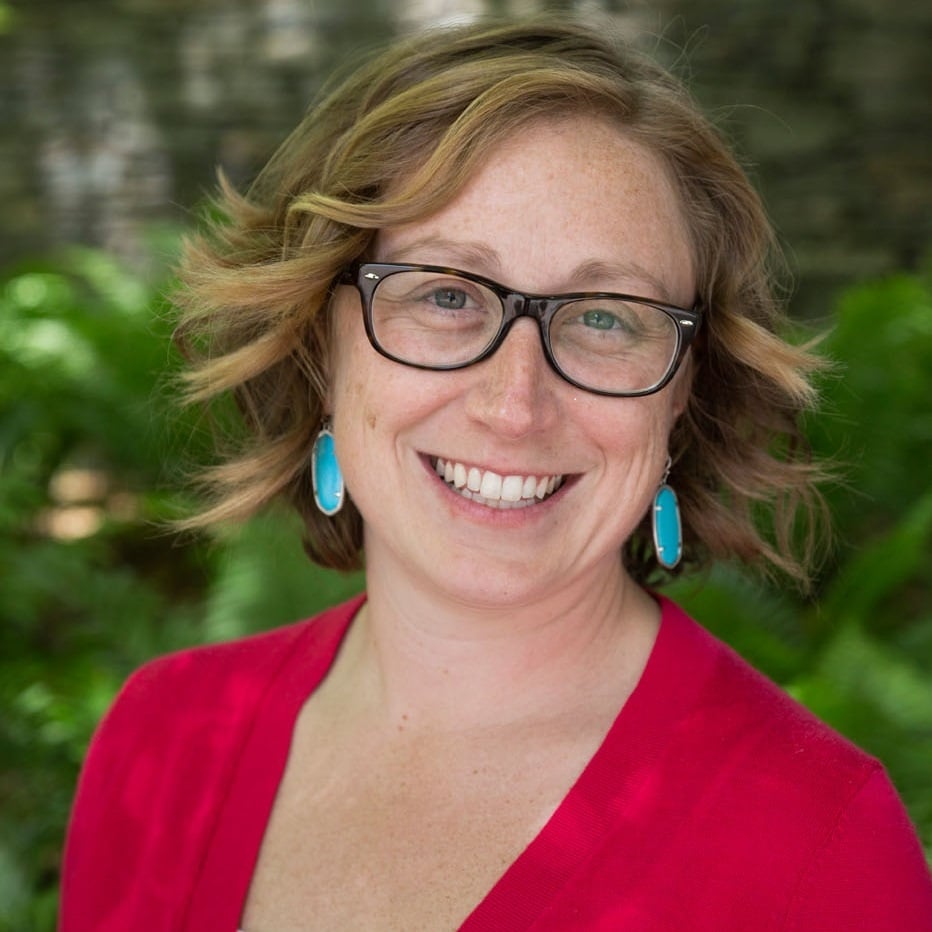
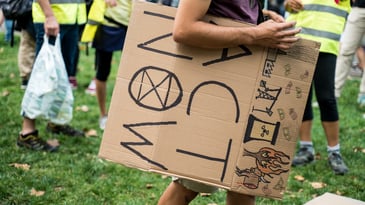
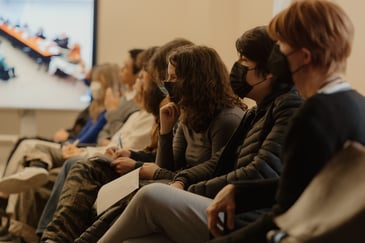
.jpg?width=365&name=how%20to%20talk%20about%20climate%20change%20smaller%20(1).jpg)
